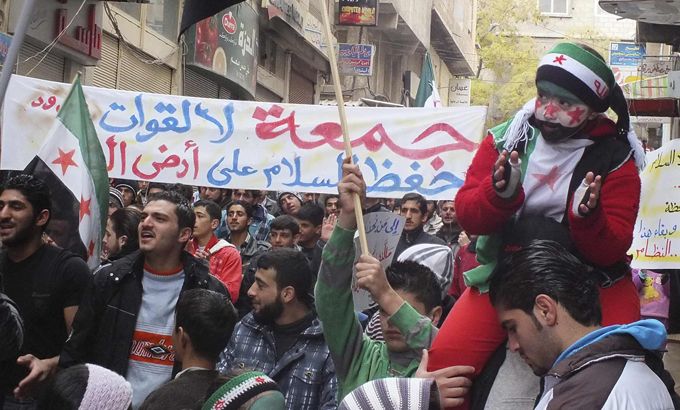
Planning for the Syrian endgame
As the conflict enters its 22nd month, we examine the different plans being made for the possible outcomes.
Diplomatic efforts to resolve the crisis in Syria have been slow-moving and largely ineffective but events appear to be gathering pace and politicians are talking of a possible endgame.
|
“The prevailing opinion in Moscow is that the Assad regime has still a lot of resources and that a sizeable part of the Syrian population supports him and that he may weather the storm and if it becomes obvious to the opposition that they can’t win, maybe some parts of the opposition may go for a political agreement that could keep elements of the Assad regime still in power. That is what Moscow thinks will happen and what it hopes will happen.“ – Pavel Felgenhauer, a Novaya Gazeta columnist |
On the ground, rebel forces are trying to gain control of the capital, Damascus.
More than 100 Arab and Western countries have now acknowledged the Syrian National Coalition as the legitimate and sole representative of Syrians. But while it has received world recognition it still does not have the stamp of approval from all Syrians.
The leader of the opposition is urging Syria’s minority Alawite community to turn against President Bashar al-Assad – an Alawite himself, facing a mainly Sunni uprising.
The deputy foreign minister of Russia – a strong ally of Syria – has been quoted as saying rebel forces may win the fight.
Mikhail Bogdanov said: “There is a trend for the government to progressively lose control over an increasing part of the territory.”
He added that “an opposition victory cannot be excluded”.
But Russia’s foreign ministry backtracked on Friday, issuing a denial some 22 hours after the statement.
And the US is starting to plan for an opposition victory. The White House has branded one group of fighters, said to be linked to al-Qaeda in Iraq, as ‘terrorists’ – effectively excluding them from any future discussions.
The opposition is already planning for the post-Assad phase and, for most, that will not involve any form of Western intervention.
Al Jazeera’s Zeina Khodr, reporting from the Idlib province, says: “Not long ago, when anti-government demonstrators took to the streets they would appeal to the international community for help. They asked for a no fly zone. They asked the world to supply them with weapons. But they are no longer asking for that. These people are demanding the international community doesn’t interfere in their affairs.”
Is Assad heading for a last stand as the conflict spills into its 22nd month?
Inside Syria, with presenter Ghida Fakhry, discusses with guests: Ammar Waqqaf, a member of the Syrian Social Club, a group advocating reform in Syria; Scott Lucas, a professor of American Studies at the University of Birmingham; and Pavel Felgenhauer, a political analyst and columnist at the newspaper Novaya Gazeta.
|
“I’m afraid I can’t see the Sunnis of Syria really listening to this foreignly appointed executive rather than an elected person by Syrians … let alone Alawis listening to him. The support base of President Assad or for the central government isn’t at all about Alawites. I’m sorry to say people are being disillusioned by this – there are a lot of Sunnis who support the central government and who do not want the central government to collapse for all sorts of reasons – the least of which [is] not to bring Syria into a chaotic situation or becoming a failed state. Ammar Waqqaf, from the Syrian Social Club |